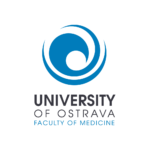Přehled
The program focuses on the study of biological processes at molecular and cell level, particularly the complex interactions of cells with their environment and among informational macromolecules (DNA, RNA, proteins), using state-of-the-art approaches and techniques of molecular biology and bioinformatics. It intersects with most biological areas and highly impacts modern medicine and the development of new biotechnologies with applications in food and pharmaceutic industry, agriculture, etc.
Application for the programme starting in the winter semester by:
30. 4. 2025
Detailed information about the study programme
Offer of dissertation topics:
- Analysis of structure and evolution of holocentric chromosomes of spiders by bioinformatic and cytogenetic methods
- Bioinformatic analysis of catalytic DNA molecules
- Characterization of the Type III Secretion System in the Bacterial Genus Aeromonas
- Circadian disruption in non-neural brain tissue studied by integrative omics and luminescence microscopy
- Commensal streptomycetes as a unique source of biologically active compounds
- Cytogenomics of selected teleost fishes
- Deciphering the role of bone marrow adipocytes in mouse models of obesity: impact of sex dimorphism
- Deciphering the Role of Histone Serine ADP-Ribosylation in Chromatin Regulation and Neurodegeneration
- Design, structural and functional characterization of novel photoresponsive proteins
- Development of fluorescent deoxyribozyme sensors
- Discovery of unique chemical structures of plant metabolites
- Evolution of karyotype, gene clusters, and sex chromosomes in entelegyne spiders of the superfamily Marronoidea
- Exploring cellular and molecular mechanisms of neurological diseases with organoids and advanced transcriptomics
- Fusogenic potential of the envelope glycoproteins of endogenous retroviruses
- Karyotype evolution of mesothelid and mygalomorph spiders
- Karyotype evolution of parasitiform mites and their putative relatives
- Markers for personalised treatment of patients with virally induced malignancies
- Metabolic engineering for bioproduction of terpenoids
- Microbial communities: Rules for cell adhesion and biofilm organization
- Molecular and cellular analysis of the ischemic brain using spatial and single-cell transcriptomics
- Novel mechanisms of antibiotic resistance in bacteria
- Position specific translation termination.
- Protein detection using ligand-dependent hybridization
- RNA profiling of CNS neurons to determine unique genetic programs underlying axon regeneration after injury
- Structural and functional studies of the tryptophan-rich antigens (PvTRAgs) from the malarian species Plasmodium vivax
- Studies of arrestin signaling by novel techniques of advanced optical microscopy
- The impact of biological sex on physiological and pathological cardiometabolic adaptations
- The impact of the inactive X chromosome on metabolic differences between male and female tissues throughout the body
- Two-step treatment of spinal cord injury using Nlrp3-siRNA-loaded and surface-modified exosomes in combination with second-generation PI3Kdelta gene therapy
- Understanding the specificity of intramembrane proteases using biophysical principles and artificial intelligence
Profile of the graduate
The graduate displays deep theoretical knowledge in molecular and cell biology, genetics and virology, with focus on some specific branch of these scientific fields. He/she is able to propose an optimum solution of a given scientific problem, to choose suitable methodical approaches and to correctly evaluate and interpret the obtained data. He/she also shows practical ability to apply various modern methods and techniques of molecular biology, genetics, biochemistry, bioinformatics and biostatistics. The graduate can independently solve complex research problems using his/her creative thinking based on the theoretical and practical knowledge acquired during the doctoral study. He/she can find employment particularly in the reseach/development sector with focus on biology and biomedicine (both fundamental and applied research).
Application submission
The application is submitted electronically through the Charles University study information system. The completed application must be submitted electronically in the study information system no later than on 30. 4. 2025 for study programmes starting in the winter semester (October) and no later than on 15. 12. 2025 for study programmes starting in the summer semester (April).
The admission fee is 100 EUR and it is paid for each submitted application.
Entrance exam
The regular date of entrance exam for all doctoral programmes starting in the winter semester (October) is 9. – 20. 6. 2025, an alternative date is 23. – 27. 6. 2025.
The regular date of entrance exam for all doctoral programmes starting in the summer semester (April) is 4. – 5. 2. 2026, an alternative date is 11. – 12. 2. 2026.
The request for an alternative day is submitted and approved via the electronic information system.
The form of the entrance exam is an oral interview, which mainly concerns the issues of the planned dissertation and the candidate’s knowledge within the field of expertise of the given study programme.
Find more information in:
- Conditions of the admission procedure for doctoral study programmes at the Faculty of Science, Charles University, for study programmes starting in the winter semester (October)
or - Conditions of the admission procedure for doctoral study programmes at the Faculty of Science, Charles University, for study programmes starting in the summer semester (April).
Important links
Detailed description of the study on the website of the Department of Genetics and Microbiology
Applicants with specific needs
If you have a physical handicap, you can apply for a modification of the entrance exam. For more information read the Conditions of the admission procedure for doctoral study programmes.
Departments involved in this programme
Department of Genetics and Microbiology
Guarantor of the study programme
doc. RNDr. Dana Holá, Ph.D.
dana.hola@natur.cuni.cz
Do you have a question?
Complete information about the admission procedure can be found on the website for applicants. For questions, please contact the admissions contact persons.





